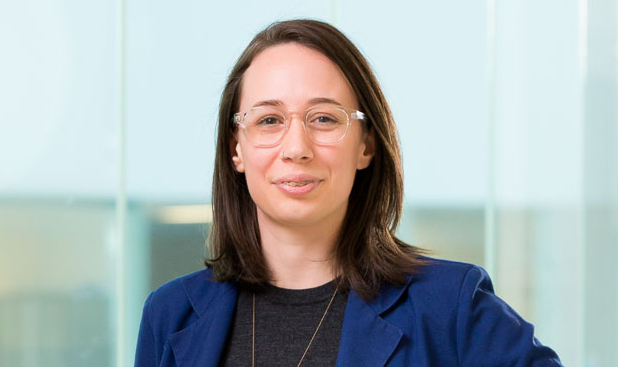Zoe Stephenson
She/her
Zoe Stephenson is a committed and determined person. Add to that, her love for her work and her passion for equality for everyone.

As the Communications and PR Manager at the University of Melbourne Centre for Cancer Research, she works closely with the director, Professor Sean Grimmond and 13 research leaders from across the University who have come together to improve the outcomes and quality of life for people affected by cancer.
Zoe says the research findings are amazing to communicate and she feels very lucky to work with such an incredibly impressive group of people.
“I love learning and am constantly learning about new innovations in research, and how we are getting smarter at tackling cancer and seeing the progression of research into something that has clinical application. It is so exciting to be able to talk to and work with the people undertaking this research,” says Zoe.
She is also buoyed by her role as a volunteer as Communications Lead, along with Lynley Eavis from MDHS MarComms, on the University of Melbourne Pride in Action Network. She is proud to work with the passionate people on the committee, to create a visibly supportive and inclusive workplace and learning environment.
The efforts of the group were recently rewarded as the team won an Excellence Award for 2020 for Excellence in a Priority Area.
She is grateful for the recognition for the important work the Pride in Action Committee is doing and that it is creating real impact at the University.
Zoe believes it has also been a great way to celebrate the achievements over the past two years, including resources like How to be a good ally flyer, the running of many educational and fun events.
Critical to this has been the development of ally training for students and sharing incredibly personal stories. She applauds those willing to tell their stories that are generously shared.
“All of these initiatives have been embraced with open arms by the University community of staff and students. We all volunteer our time in addition to our everyday roles, because we are passionate about influencing change. Many of us personally understand the enormous impact that feeling safe and supported to be yourself at work or school can have.”
Acknowledgement is not sought but welcomed. For the Pride in Action Network committee, the most affirming measure of impact has been through the personal thanks received from people who are part of the community.
Support comes from all over the campus. From the simple act of wearing rainbow lanyards, through to working with the central University Marketing & Comms teams to put huge rainbows up around campus earlier this year, these visible signs of welcome have had more positive impact than anyone could have imagined.
She echoes the thoughts of all on the committee.
“It feels amazing to be part of this,” she reflects.
Along with Lynley Eavis, the Comms team develop the monthly newsletter. As the statistics roll in each month, they are heartened by the quantitative aspect of the impact of their work.
“People take the time to engage in every newsletter, to read right to the end and click on the resources that we include to help people continually learn and understand.”
All of this is a reminder that the work is valued.
Zoe is clear about what it takes to create change and create a workplace where diversity and inclusion are visible.
“We need to listen to diverse communities as it is fundamental to improving diversity and inclusion. Be open to learning and use all possible platforms to give voice to others.
Leaders need to advocate for diverse representation at all levels: on leadership committees, in research, executive roles and through targeted scholarships and support.
Diversity and inclusion is both vital and hard work. It can’t be an afterthought, so it is important to include it in strategy creation, to set quotas and KPIs and continually review and update these through community consultation.”
Zoe sets a cracking pace and she has advice for all of us.
“Do your research, do the work. There are many resources online – social media pages you can follow, stories to read to learn about diverse and intersectional communities and how you can be a good ally.
Speak out. If you see or hear something that doesn’t quite fit with your values or those of the University, then say something. Start a discussion or find resources to pass on, with a note on why a particular action might cause harm.”
And from personal experience, Zoe understands how making assumptions can be careless and hurtful.
“Something as simple as not assuming the gender of someone’s partner can really make people feel supported and accepted,” she says.
Zoe is hopeful for the future. She points to the engaged and committed leadership of the Faculty as an example of living the values of diversity and inclusion, not just talking about them.